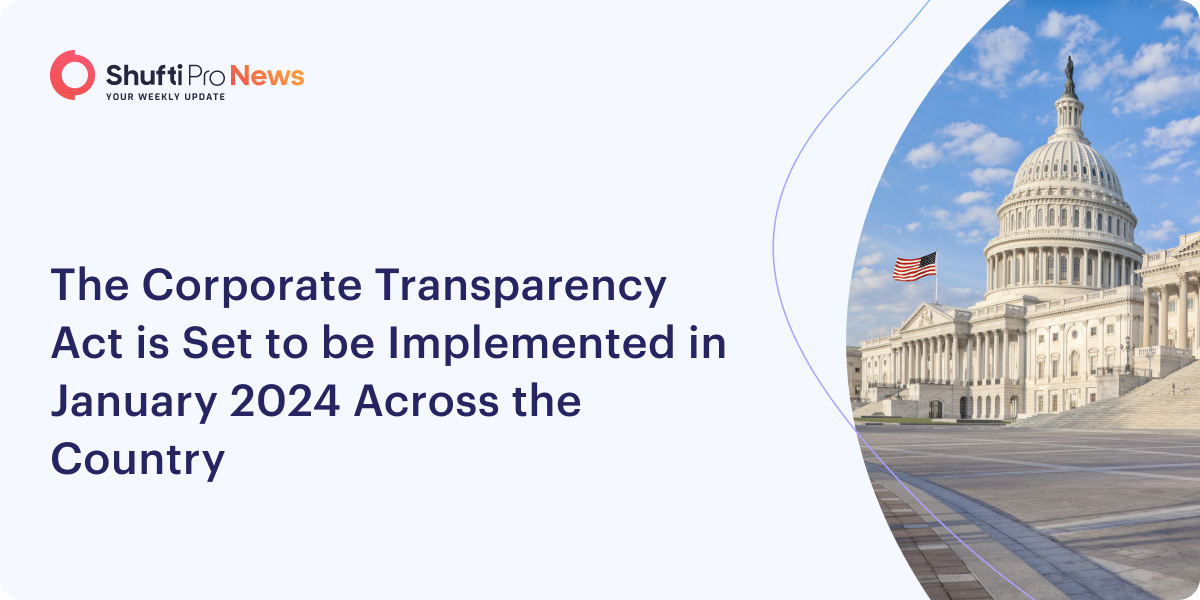The Corporate Transparency Act is Set to be Implemented in January 2024 Across the Country

The Corporate Transparency Act passed in 2021 is going into enforcement in a few days and will impact more than 30 million businesses, requiring them to submit Beneficial Ownership Information (BOI) reports in compliance with the CTA.
According to the Corporate Transparency Act (CTA), businesses, especially those functioning on relatively small scales, will need to register with a new regulatory body called the Crimes Enforcement Network after the implementation of the CTA, which is just a few days away. It was announced that January 1st, 2024, would be the enactment date of the Corporate Transparency Act.
“For a small business, you have a higher cost per employee when it comes to complying with regulations than your larger business competitors,” said Tom Sullivan, vice president of small business policy for the U.S. Chamber of Commerce.
This act is set to battle the prevalent threat of shell companies and fight financial crime attempts made by criminals and other fraudulent entities that hide their identities and use legitimate financial systems to launder money. Though the law is set to go into effect in a few days, the deadline for existing businesses to register has been extended to January 1st, 2024. Companies that will be created after January 1st will have 90 days to comply, which was extended from 30 days. Companies could be charged as much as $10,000 as a penalty for non-compliance.
Businesses that have 20+ employees and more than $5 million in sales can request exemptions from FinCEN, but apart from that, it still leaves 32 million small businesses that need to comply and cannot avail of exemptions. The owners and beneficiaries of these businesses are required to provide FinCEN with their individual and company verification documents that will be used to verify the legitimacy of their businesses.
Starting the 1st of the new year, the reporting companies will have to submit their BOI to the U.S. Department of the Treasury’s Financial Crimes Enforcement Network (FinCEN). These BOIs will then be used to track and shut down illegal businesses and shell companies. This will ultimately aid in the eradication of money laundering, as these shell companies are mostly used by money launderers, terrorists, and criminals to commit financial crimes.
Despite its benefits, this law is relatively strict and will impact small businesses. An attorney named Leon Rittenberg III, based in New Orleans, said, ”I gave a speech about this to 150 chief financial officers in July, and they weren’t aware of it. How do you expect a guy with a food truck to be able to comply with these rules?” However, regardless of the headaches and expenses this law imposes, businesses must comply; otherwise, they will face heavy fines and penalties.

 Explore Now
Explore Now













